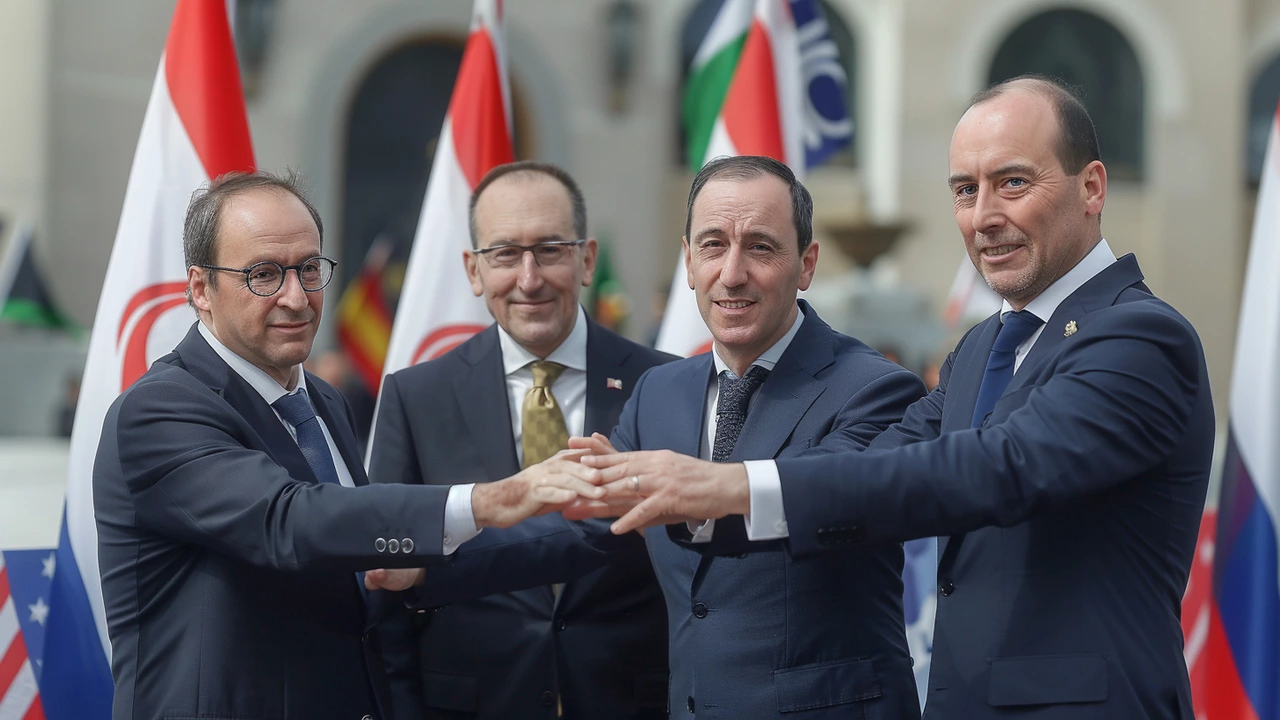Spain, Ireland, and Norway Take Bold Step Recognising Palestine
In a move that could alter the dynamics of the Middle Eastern conflict, Spain, Ireland, and Norway have taken a significant step by officially recognising the State of Palestine. By joining over 140 United Nations member states, these countries aim to accelerate efforts for a ceasefire amidst the ongoing violence in Gaza. This decision is not just an isolated diplomatic gesture but is poised to have far-reaching implications on diplomatic relationships and the global stance regarding the Israel-Palestine conflict.
The recognition of Palestine by these three nations has been seen as a historic decision by many, yet it has also ignited fury from Israel. The Irish government formalized its stance through a cabinet meeting, leading to the establishment of full diplomatic relations between Dublin and Ramallah. Irish Prime Minister Simon Harris underscored the urgency of a two-state solution, emphasizing that both Israel and Palestine deserve to live in peace and security, side by side.
An International Legal Standpoint
Spanish Prime Minister Pedro Sánchez highlighted that Spain’s decision to recognize Palestine is rooted in the respect for international law and the defense of a rules-based international order. He made it clear that Spain supports the establishment of a unified Palestinian state based on the pre-1967 borders. This specific detail has added weight to Spain’s recognition, signifying a commitment to historical boundaries and legal precedents.
Norway's approach has been similarly principled. For over 30 years, Norway has advocated for a Palestinian state, and this recent step is consistent with its long-term diplomatic agenda. Norwegian Foreign Minister Espen Barth Eide reiterated Norway’s unwavering support for Palestinian statehood as a crucial element for sustainable peace in the region.
Reactions from Israel
Israel, however, has strongly condemned the actions taken by Spain, Ireland, and Norway. Viewing this move as a reward for Hamas, Israel has responded by withdrawing its ambassadors from Madrid, Oslo, and Dublin. Further escalating the diplomatic clash, Israel has summoned the ambassadors of these countries, making its stance clear on the matter. Meanwhile, there are speculative reports that the United Kingdom might also join the bandwagon in recognizing Palestine, in line with its support for a two-state solution.
According to the Israeli government, these recognitions undermine efforts to achieve direct negotiations between Israel and Palestine. Israel argues that unilateral recognitions could embolden extremist factions and diminish the prospects of a negotiated settlement. This tension encapsulates the broader complexities of the international community's interventions in the Israel-Palestine conflict.

The Global Response and Implications
International reactions have been mixed but largely supportive of the recognition of Palestine. Many countries and humanitarian organizations see this as a step towards balancing the diplomatic scales and adding pressure for a just resolution. It’s considered a significant push in favor of Palestinian self-determination and a countermeasure against what they deem as Israel’s disproportionate actions in Gaza.
This step also highlights a growing international isolation of Israel, with more countries willing to take bold stances against its policies. Analysts suggest that this could lead to an increased thrust towards peace negotiations, though the immediate shift may be more pronounced in diplomatic tensions and regional geopolitical alignments.
The Way Forward
As these three countries—Spain, Ireland, and Norway—move forward with their recognition of Palestine, other nations might follow suit. A domino effect could be in play, potentially bringing more countries into alignment with the stance taken by these nations. Of course, this is likely to add pressure on Israel to rethink its strategies and approaches in dealing with both Palestinian authorities and the broader international community.
The focus on a two-state solution underscores the continuing importance of negotiations and realistic frameworks for peace. While these recognitions don't offer an immediate remedy to the complex issues at hand, they do signify a turning point where more countries are willing to directly confront the status quo and advocate for a reevaluation of existing policies.
In conclusion, the recognition of Palestine by Spain, Ireland, and Norway serves as a clarion call for reassessing the geopolitical landscape of the Israel-Palestine conflict. By aligning their foreign policies with the principles of international law and advocating for a just and balanced approach, these countries have set a precedent that could spark further debates and actions across the world. Only time will reveal the full impact of these decisions, but what remains clear is that the momentum for change is palpable and may very well shape future negotiations and peace initiatives.





